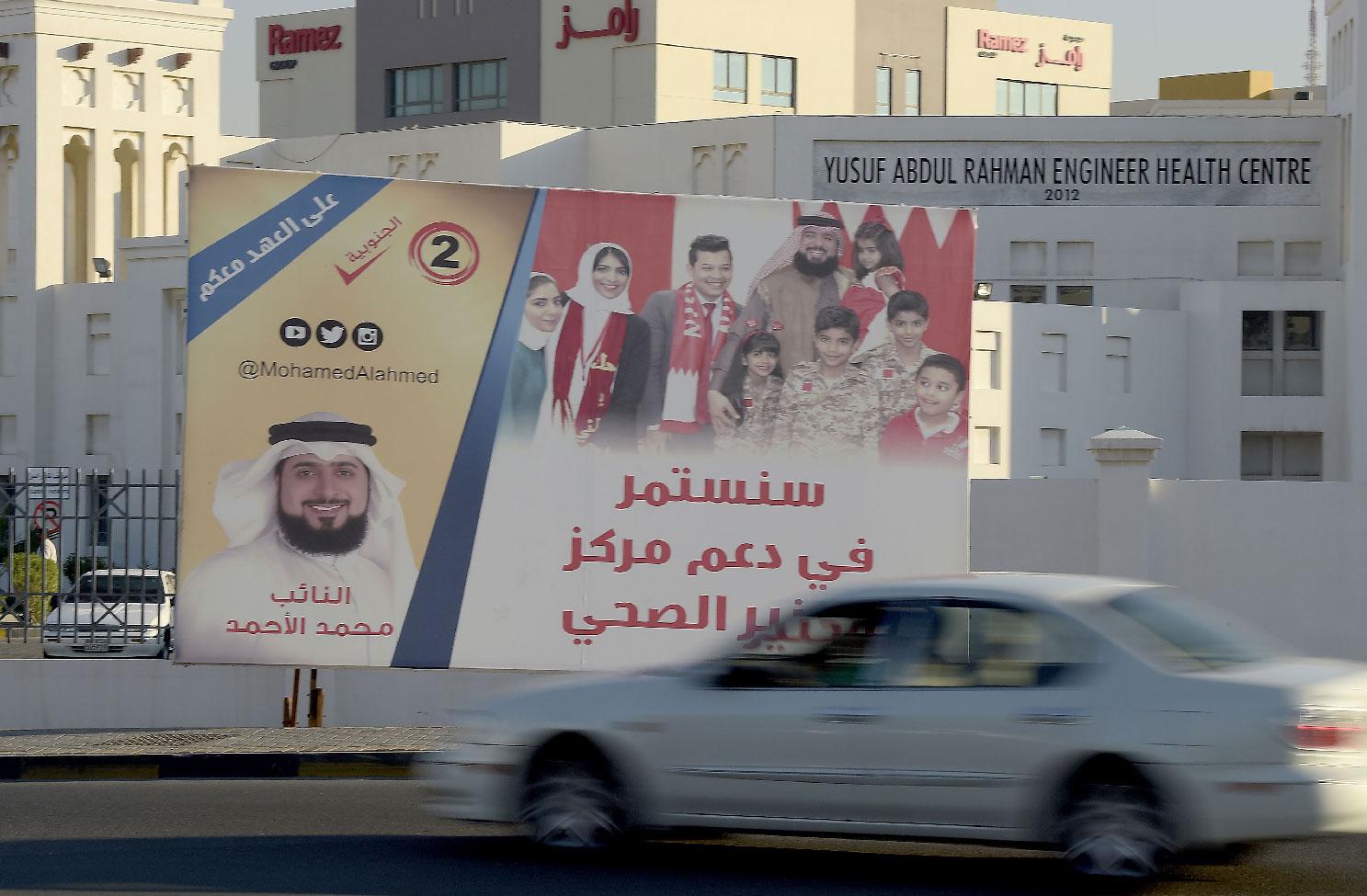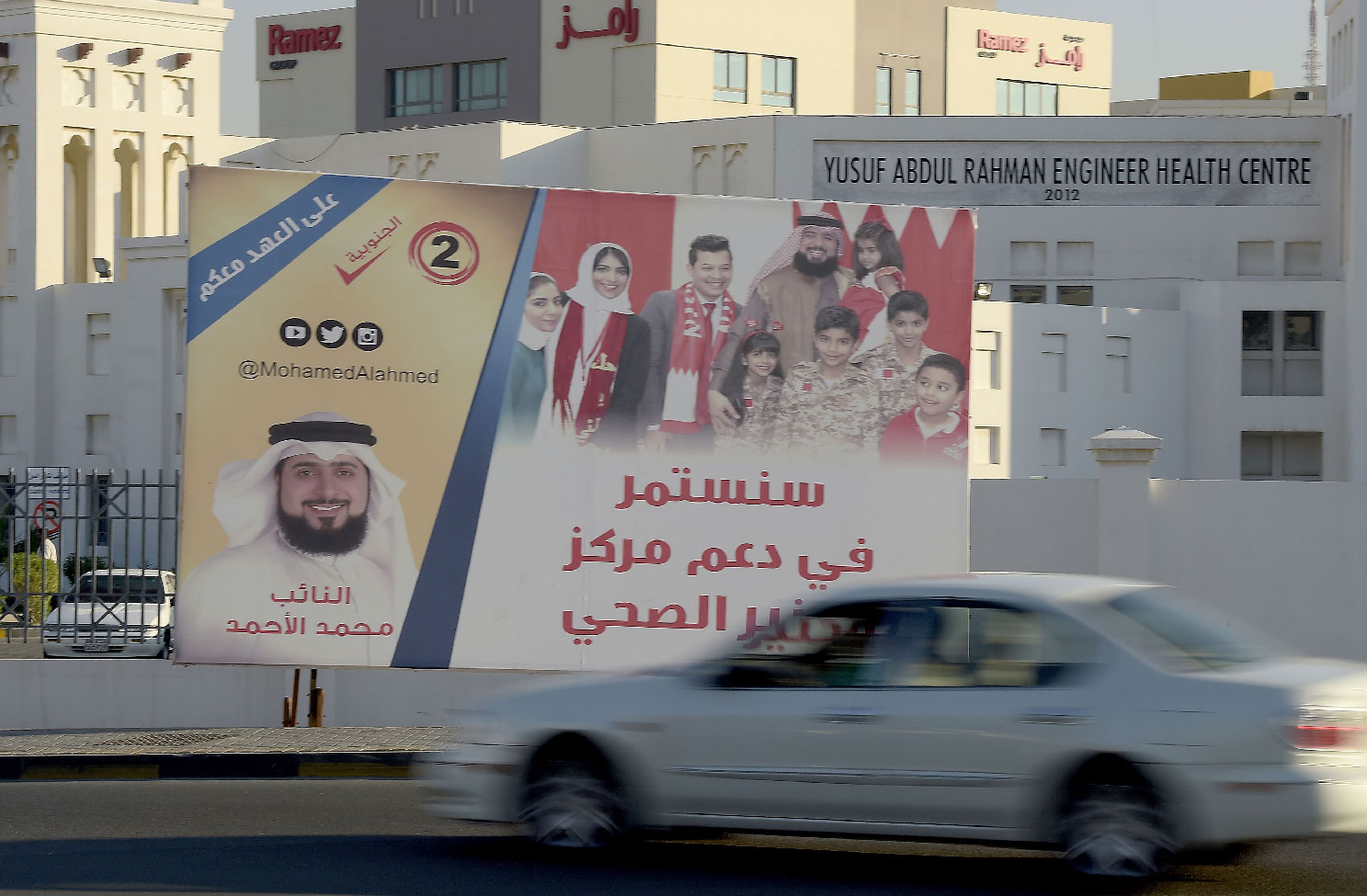Bahrain holds elections with ban on opposition groups
MANAMA - Bahrainis vote on Saturday in a parliamentary election from which opposition groups have been barred in a crackdown on dissent in the Western-allied kingdom as tensions with the Shiite Muslim opposition show no signs of abating.
Activists have called for a boycott of what they describe as "farce" elections, raising doubts about the credibility of the polls. The government says the elections are democratic. A municipal poll coincides with the parliamentary vote.
Bahrain's Sunni-Muslim ruling Al Khalifa family has kept a lid on dissent since the Shiite opposition staged a failed uprising in 2011. Saudi Arabia sent in troops to help crush the unrest in a mark of concern that any power-sharing concession by Bahrain could inspire Saudi Arabia's own Shiite minority.
Riyadh regards the neighbouring island nation, which does not possess vast oil wealth like other Gulf states, as a critical ally against Iranian aggression.
Bahraini authorities also accuse Shiite Iran of provoking unrest in the kingdom and throughout the region. Tehran denies the allegation.
Fostering unrest
Bahrain, which is home to the US Navy's Fifth Fleet, has closed the main opposition groups, barred their members from running in elections and prosecuted scores of people in mass trials.
The government said 506 candidates are running in the election, including the highest number of female candidates. It expects a higher voter turnout than in 2014, which it put at 53 percent, when opposition groups boycotted the elections.
Bahrain's state news agency (BNA) said voting began at 8 a.m. (0500 GMT) and will continue until 8 p.m. (1700 GMT). Around 365,000 are expected to turn up at 54 polling stations, it added.
Only 23, out of 40 incumbents of the House of Representatives, are seeking re-election this year to parliament, which has limited powers.
The kingdom's interior ministry called on Bahrainis to disregard rumours and seek "trusted sources" for information. "Text messages saying your name has been removed and calling on you not to vote are false," the ministry said in a Twitter post.
The ministry later accused Iran of sending the messages saying it was "the source of 40,000 e-messages to disturb the parliamentary and municipal elections."
Tehran could not be immediately reached for a comment.
Members of Bahrain's Shiite community say they are deprived of jobs and government services and treated as second class citizens in the country of 1.5 million.
The authorities deny the allegations and accuse Iran of fostering unrest that has seen demonstrators clash with security forces, who have been targeted by several bomb attacks. Tehran denies the allegations.
Bahrain emboldened
A leader of dissolved opposition group al-Wefaq said the rise of Saudi Crown Prince Mohammed bin Salman has emboldened Bahrain's authorities in their crackdown on dissent, which has included stripping scores of activists from their nationality.
"They couldn't go ahead with all the crackdown without the strong backing of the Saudi government. Mohammed bin Salman listens only to hardliners in Bahrain's ruling family," Ali Alaswad, who lives in self-exile in London and has been sentenced in absentia to life in prison, said.
Since 2011, authorities have imprisoned hundreds of dissidents -- including top Shiite opposition leader Sheikh Ali Salman, who headed Al-Wefaq -- and stripped many of their nationality.
Al-Wefaq had called for a boycott of this year's parliamentary election after a law issued in June barred "leaders and members of political associations dissolved for violating the kingdom's constitution or its laws" from standing.
Government opponents say the space for political expression has been shrinking in the lead up to the election. Several activists, including a former lawmaker, were arrested last week for tweeting about boycotting elections, activists said.
"No-one is barred from expressing their political views," said a government spokeswomen. "Bahrain is home to 16 political societies, the majority of which have put forward candidates for the upcoming elections, and the government fully supports open and inclusive political dialogue."
Some candidates have taken to social media to urge Bahrainis to vote as a patriotic duty.
"Those who don't participate will not be part of the national consensus or equation in Bahrain," said Ali Al Aradi, deputy president of Bahrain's House of Representatives.
Some opposition figures hope the outcry over the murder of prominent Saudi journalist Jamal Khashoggi in Riyadh's consulate in Istanbul last month could help strengthen more moderate voices in the region, including members of Bahrain's royal family who are open to dialogue with the opposition.
"Now if there's a real accusation from the US against Mohammed bin Salman, radical wings in Bahrain which don't want to work with the opposition will be weakened," Alaswad said.



